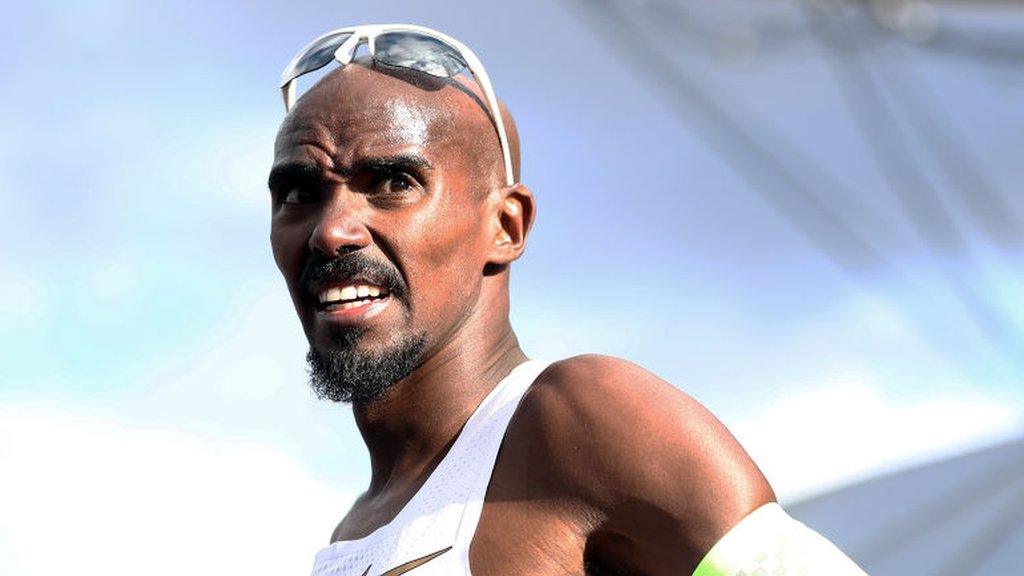London Marathon 2020: More than 45,000 runners take part
- Published
Runners take part in a virtual London Marathon across the country.
Runners in an array of colourful costumes have been setting off in parks and on roads across the UK to mark the 40th London Marathon.
All non-elite athletes have been forced to take part remotely due to Covid-19, picking their own 26.2-mile courses,
The annual race was due to take place on 26 April but was pushed back to 4 October as the UK went into lockdown.
An estimated 45,000 participants will log their progress on an app to make their times official and secure medals.
Many runners had set off as heavy rain lashed parts of the UK.
Persistent downpours were led to more than 40 flood warnings in Scotland, England and Wales.
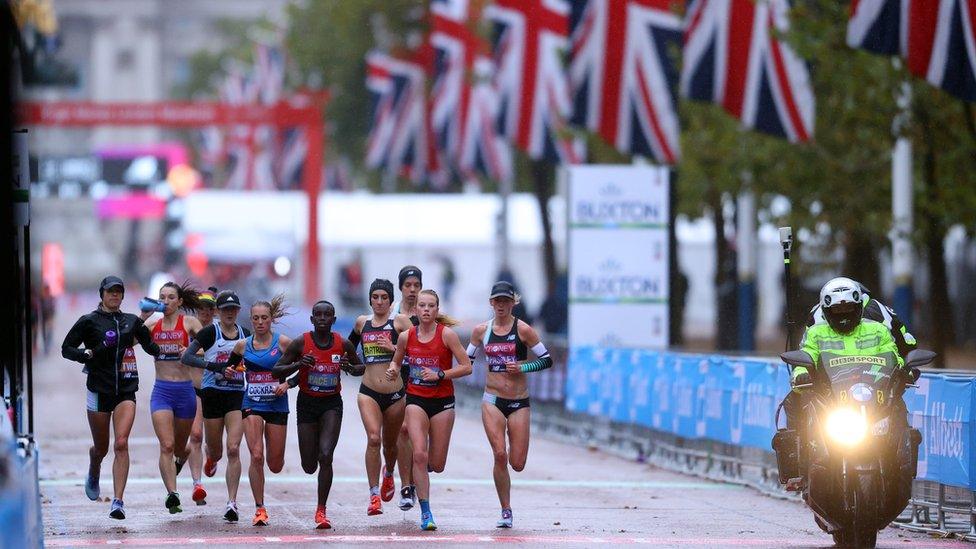
The elite women's, men's and wheelchair races still took place in central London
The women's and men's elite races were still being run in the capital, with runners completing 19.6 laps of a course, ending at the traditional finish line on The Mall.
Under the new system non-elite runners were able to break up the distance across the day.
Michael Beynon became the first person with Down's Syndrome from Wales to run the London Marathon this year.
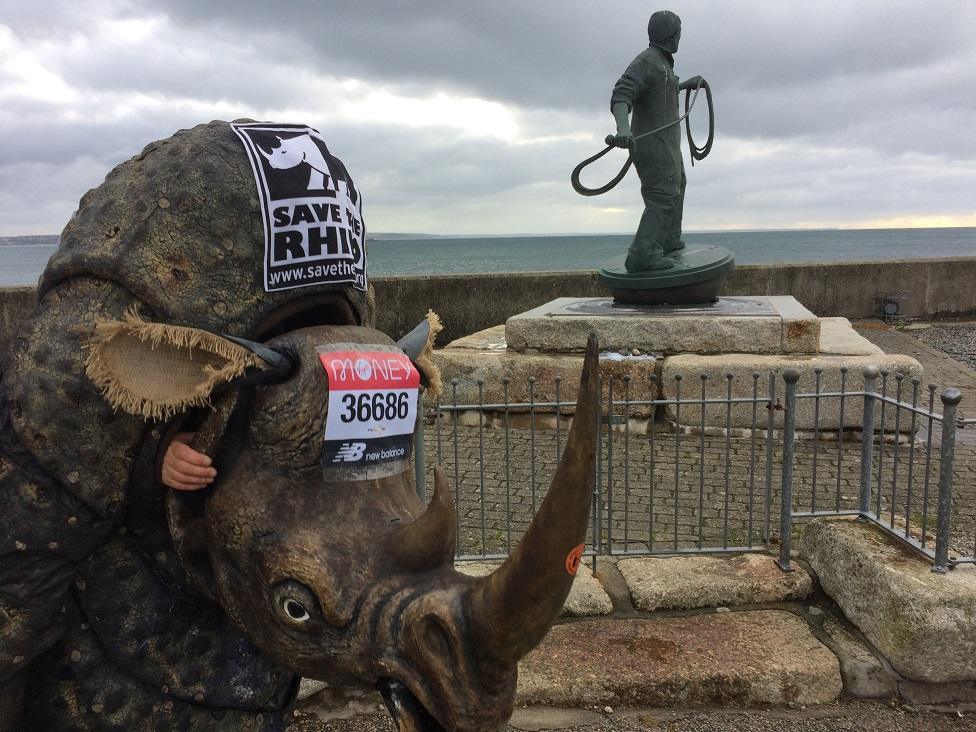
Gill Silverthorn ran her marathon in Cornwall in a 10kg costume to raise money for Save the Rhino
Running in a rhino costume through the early hours around Penzance, in Cornwall, "drew a few odd stares", said runner Gill Silverthorn.
She set off just after midnight to avoid bad weather, and completed her course in just less than 10 hours.
Ms Silverthorn has completed 10 London Marathons under more normal circumstances.
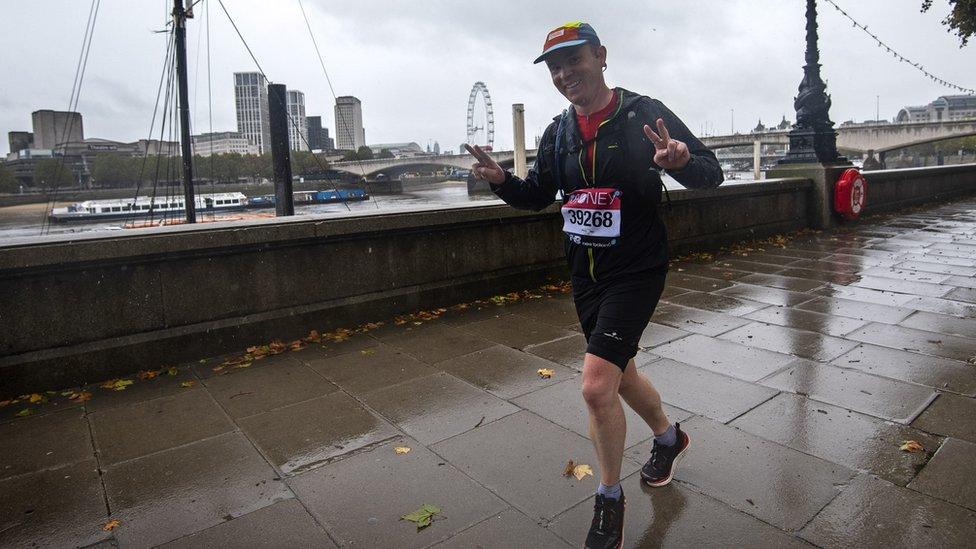
Runners have been allowed to pick their own 26.2-mile courses
"Doing this here, it's like my first London. It's something so special," she said.
"Everything has been so negative with Covid-19, but doing something positive with 45,000 people around the world was just so lovely.
"It's not like previous marathons with the loud crowds. There came a point where I needed a few shouts and some car horns to keep me going."
Sue Flynn, 49, finished the race at 07:30 BST after setting off at midnight.
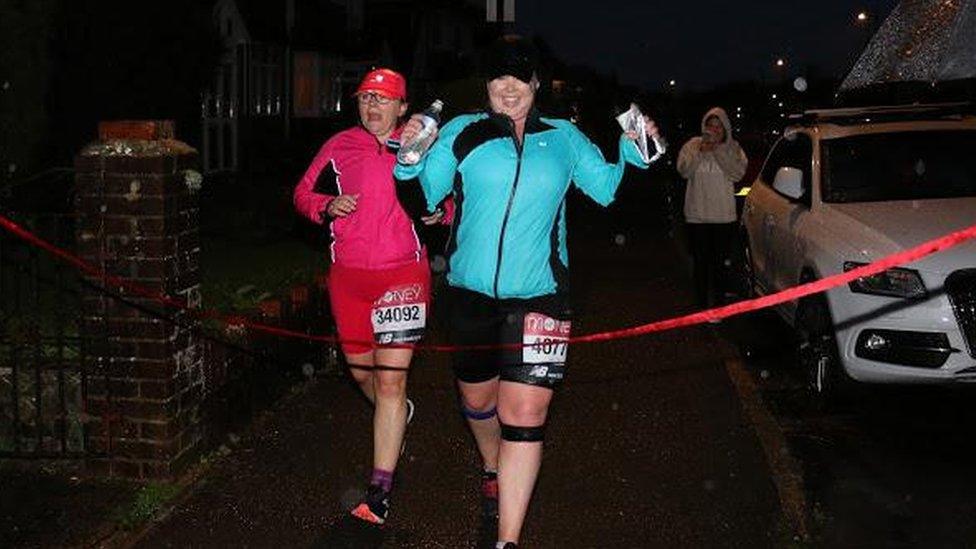
Sue Flynn (left) finished her course at 07:30 BST
"It was a unique experience," she said.
"You're not going to do a London Marathon like that again, hopefully."
The PricewaterhouseCoopers manager persuaded her five fellow runners to run overnight so she would be finished in time to give her son a lift later.
"It was actually really hard in places because you miss the support you get from the crowd," she said.
"I feel the same sense of achievement as if I'd done it in London. A marathon is a marathon.
"But it would be nice to do it again with the crowds."
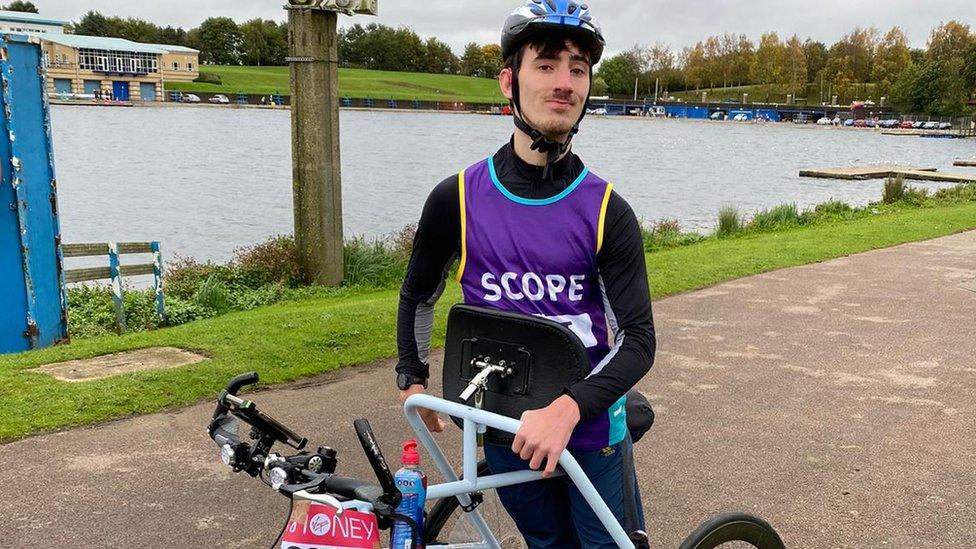
Matt Humphreys ran the 26.2 mile course using a race runner - a supportive running frame.
Matt Humphreys became the first person to complete a London marathon in a race runner - a supportive running frame.
The 22-year-old, who suffers from quadriplegic dystonia after brain injury aged 10, has been competitively running for a number of years.
He completed the course around Holme Pierrepont in Nottinghamshire to support Scope.
"The hardest bit was running into the wind for half the course," Mr Humphreys said.
"You can achieve anything if you put your mind to it."
'Couldn't do a London Marathon'
Helen Whiteley, thought she would never be able to complete the London Marathon after suffering a traumatic brain injury in 2012.
Since taking up running in January Ms Whiteley has completed 5k races and half marathons with the help of Northowram Pumas Running Club.
Ms Whiteley, who is raising money for Headway the Brain Injury Association, said: "I still have anxiety and panic attacks, especially in a situation where there are lots of people.
"I don't think I could have done a normal London Marathon.
"I'm really proud of myself. I'm really happy I can now say that I've completed a London Marathon."
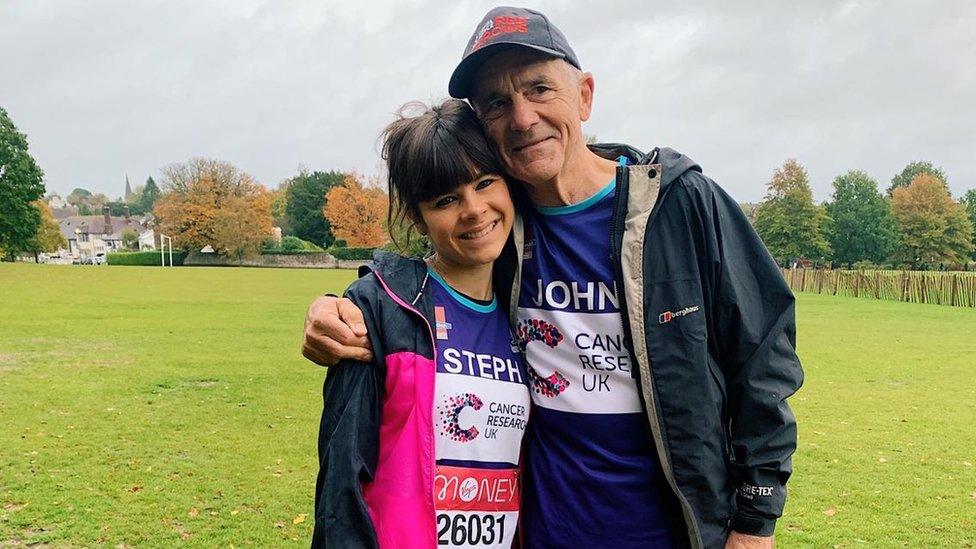
Along with her uncle John Blackwell, a former leader of the Red arrows, Steph Blackwell raised money for Cancer Research
Bake Off star Steph Blackwell completed her "marathon mission" through Sussex in honour of her dad who is having treatment for cancer.
During lockdown, Ms Blackwell received news her dad, Roger, had been diagnosed with two types of cancer, prostate cancer and incurable bowel cancer.
"The furthest I've ever run is 12 kilometres," she said.
"With six miles to go I thought 'no I can't do it'.
"But he's fighting much harder than we are. The pain we felt today is nothing compared to what he's going through."
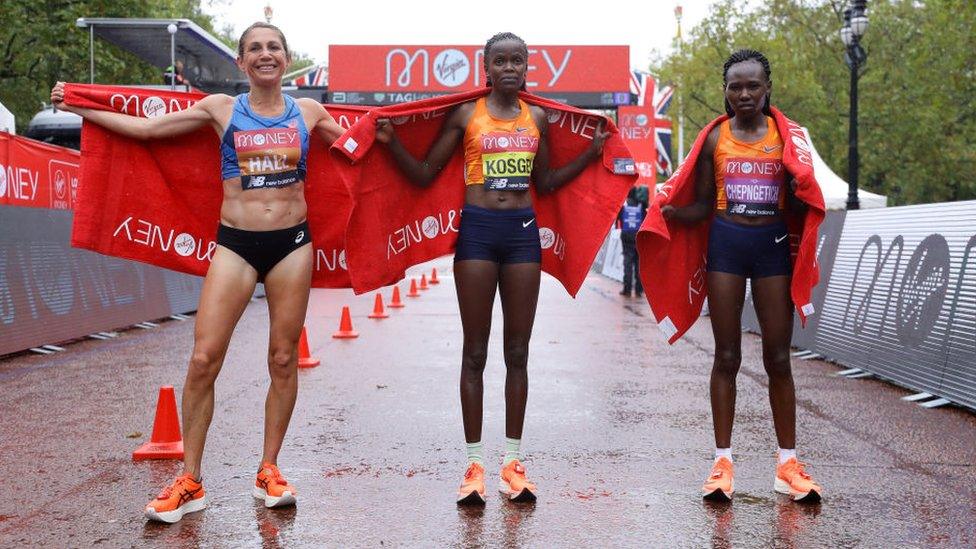
(From left) Sara Hall, Brigid Kosgei and Ruth Chepngetich finished in the top three positions of the Elite Women's London Marathon
Made in Chelsea star Josh Patterson, 31, weaved through London on a course designed to spell "RISE UP" over 26.2 miles using running app Strava.
The route included "some sharp corners and the gradients on these hills were quite savage", he said.
The streets and parks were still filled with "resilient spectators", he said.
He said: "Today was amazing, such a wonderful experience.
"It's a unique challenge, and I hope the message serves as a reminder to the British public that we can show resilience and rise up to the challenges we face in life."
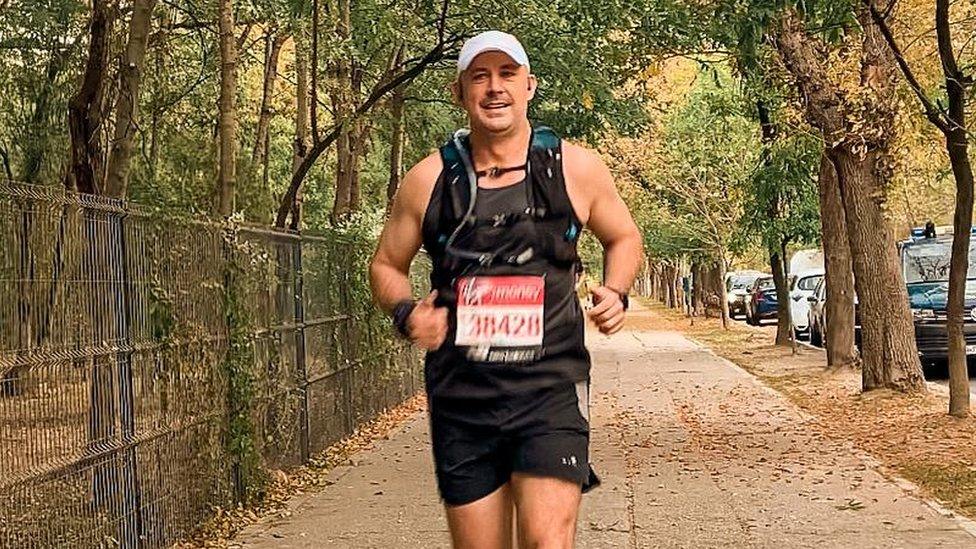
Marc Jenner ran his 21st London Marathon in Romania
Marc Jenner, 45, said running the marathon through the streets in Bucharest was "the most bizarre thing I've ever done".
Mr Jenner, who holds the world record for running the fastest marathon carrying an 80lb backpack, had planned to return to the UK to run with his family, but could not afford to spend up to a month in quarantine.
"In a normal marathon you don't have to worry about overzealous dogs, kids on scooters, red lights or anything like that," said the founder of an events company.
"It's very, very difficult to get into a decent pace and routine.
"I don't feel like I've run a marathon. I don't want to call it anti-climatic but it feels weird to be just head home once I finished."
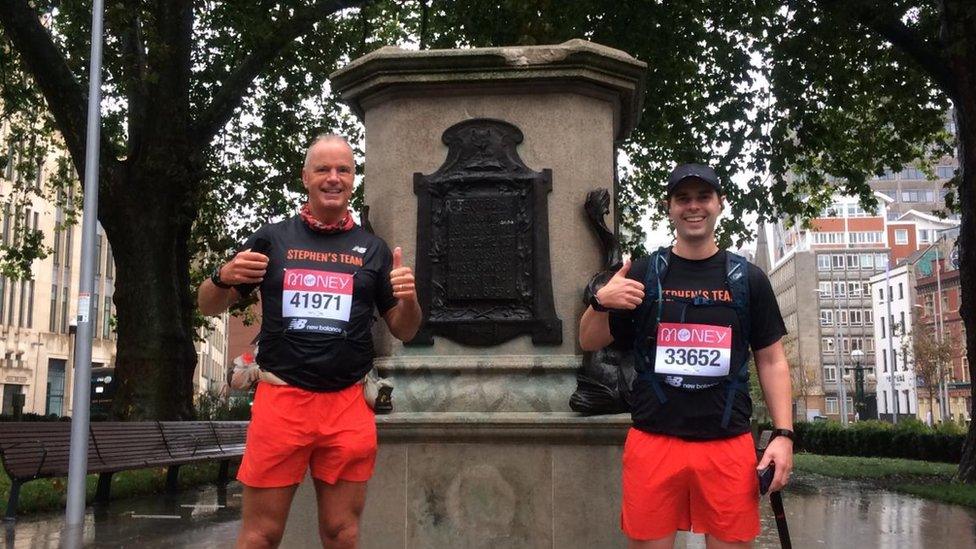
David McGillan ran a course passed the empty plinth that held a statue of Edward Colston on Bristol Harbour
David McGillan said this marathon was "one of the more special" of the 28 marathons he has run in his life.
Mr McGillan, who ran for the Stephen Lawrence Charitable Trust, said running past the plinth that until recently held a statue of Edward Colston on Bristol Harbour "struck a chord".
He said: "This was a historic marathon.
"It got cancelled and then pushed back, but when we finally got a chance to do it people turned out to cheer us on.
"The spirit of the London marathon definitely came out today."
Kenyan Brigid Kosgei won the women's race for a second year in the row - with a time of two hours, 18 minutes and 28 seconds.
American Sara Hall took second place after a last-minute sprint to the finish line.
Ethiopia's Shura Kitata won a closely fought men's race, beating Vincent Kipchumba by just one second with a time of two hours, five minutes 41 seconds.
Olympic champion and world record holder Eliud Kipchoge came eighth.
Nikita den Boer won the women's wheelchair race at the London Marathon with a personal best of one hour, 40 minutes and seven seconds.
Eight-time winner David Weir missed out on the men's wheelchair title to Canada's Brent Lakatos.
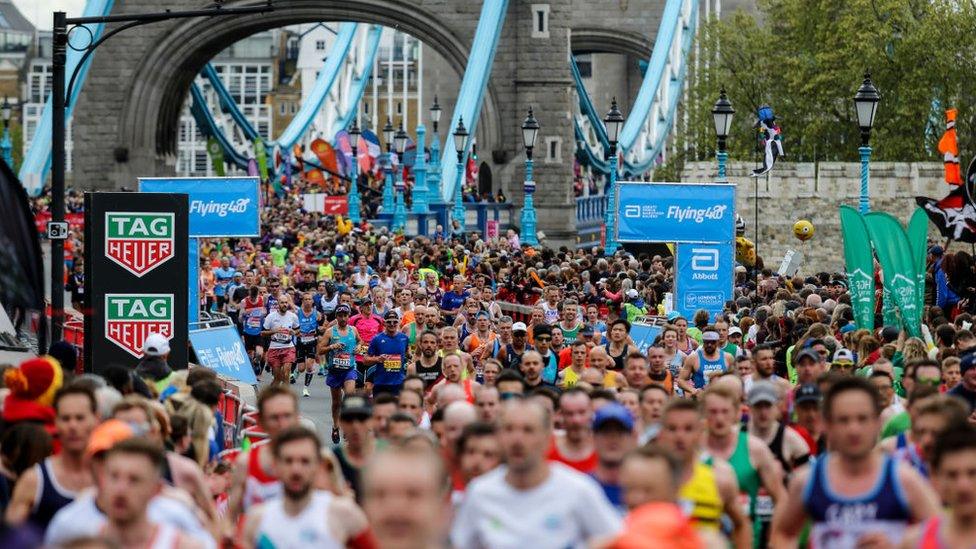
Social distancing has rendered the mass event - which had more than 40,000 participants in 2019 (pictured) - impossible
Sir Mo Farah told the BBC he "really enjoyed" working as a pacemaker in this year's race.
"It's a different atmosphere but the guys did well," he said,
"Next year is exciting and I am in a good place and enjoying myself."
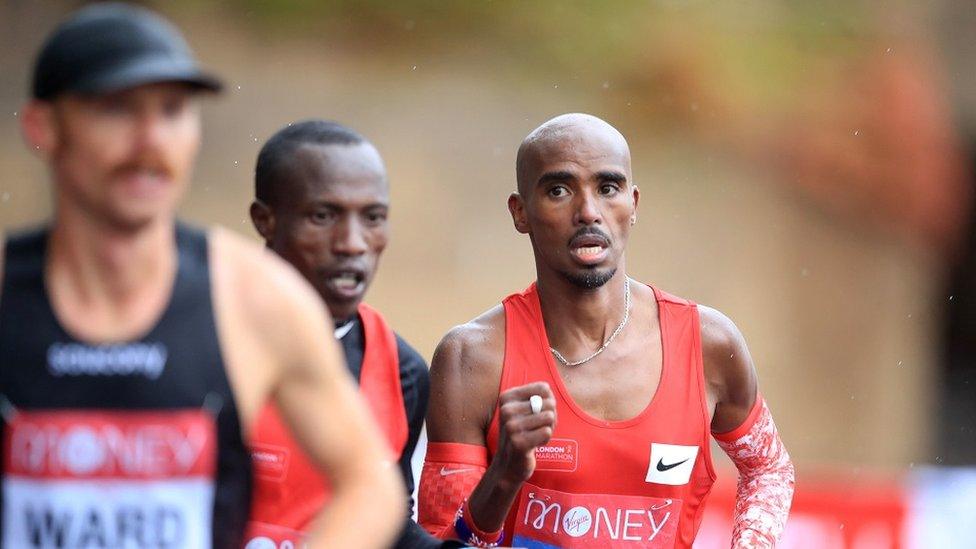
Four-time Olympic gold medal winner Sir Mo Farah worked as a pacemaker in the men's elite race
Event director Hugh Brasher said: "It was about inclusivity, removing the pressure that people can feel on event day.
"We are delighted to say that's how we believe the 40th race should be run. A celebration of achievement."
- Published3 October 2020
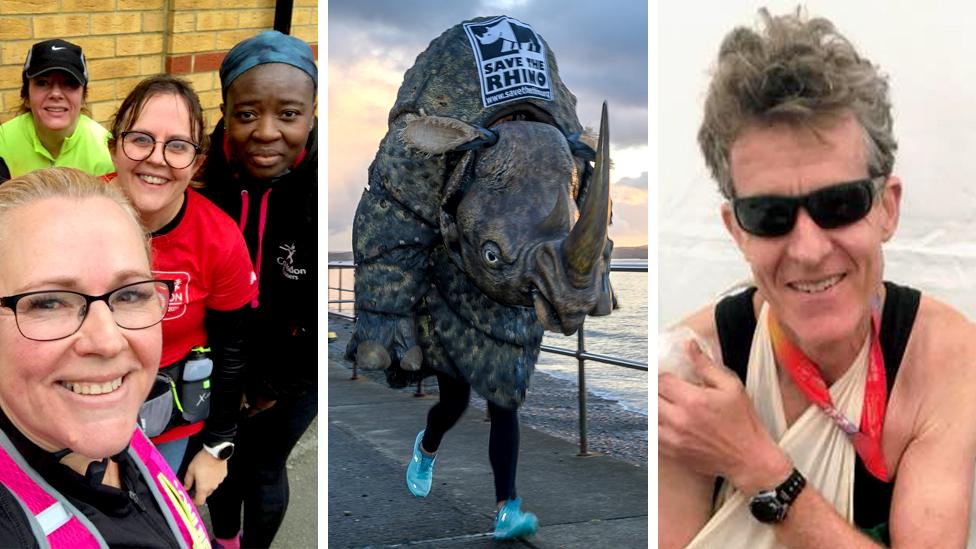
- Published3 October 2020
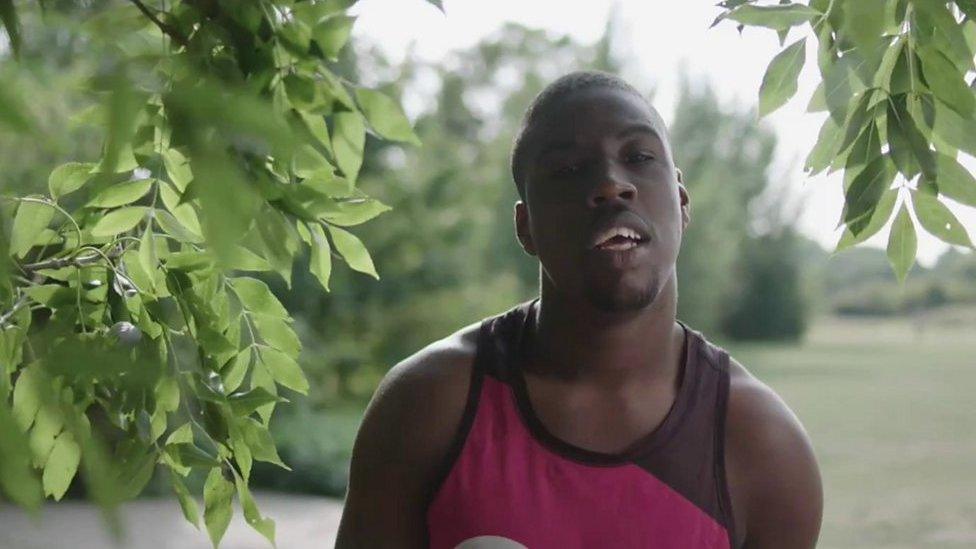
- Attribution
- Published24 April 2019
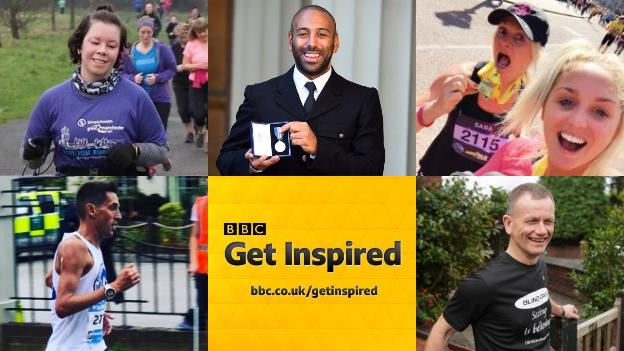
- Published26 April 2019
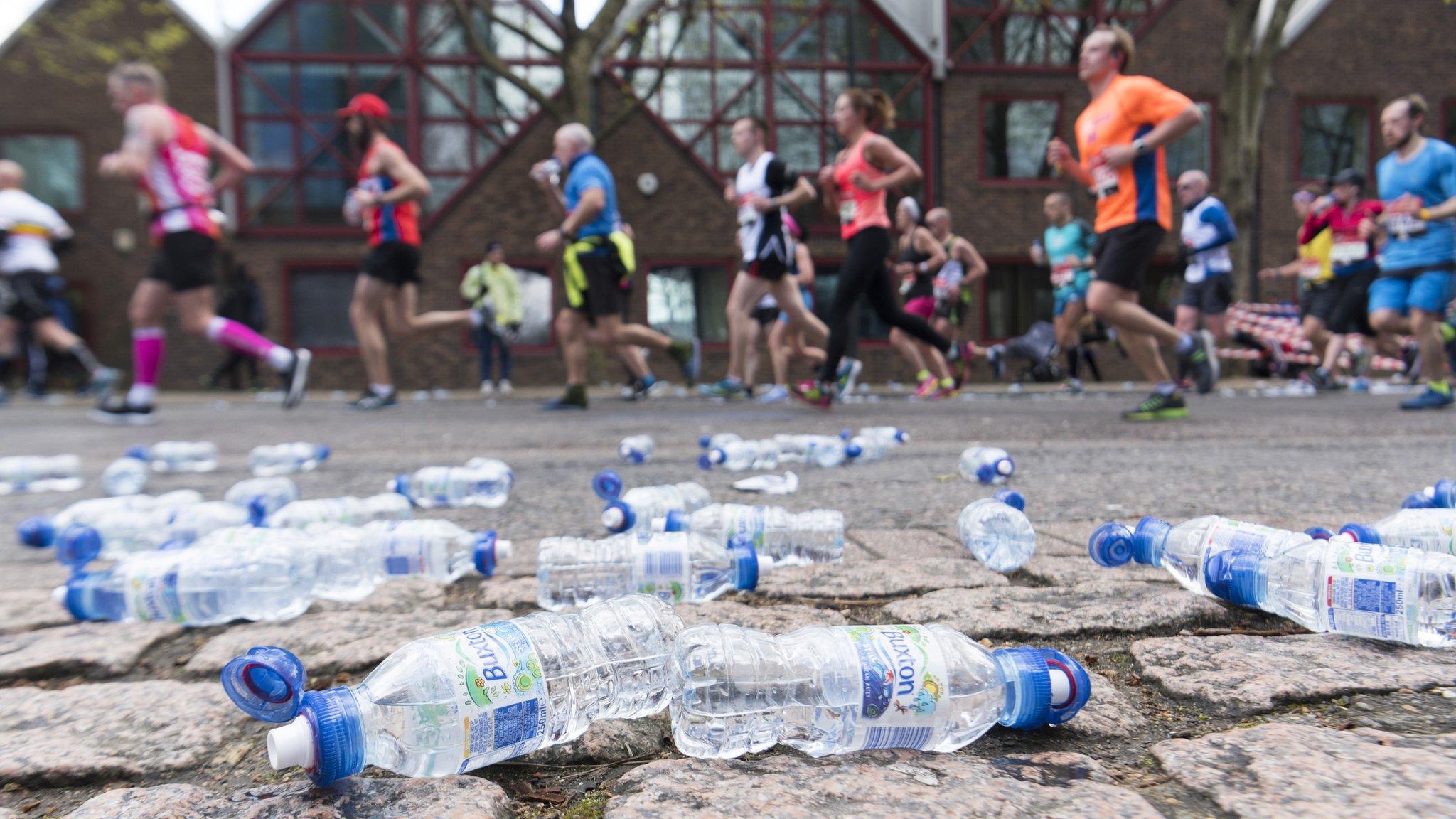
- Attribution
- Published25 April 2019
